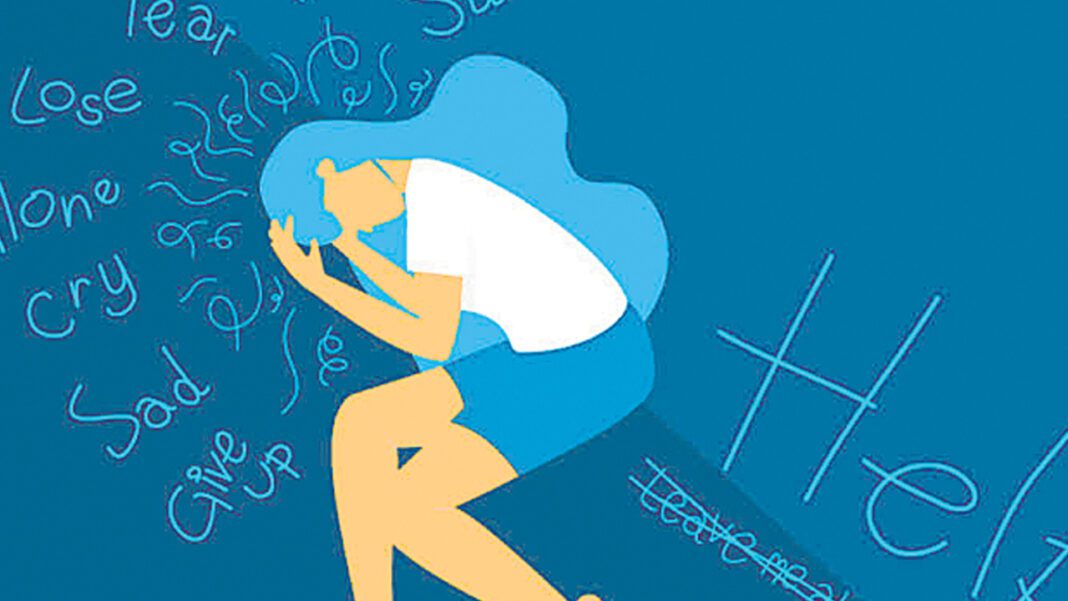Anxiety prevalence has increased, with youth and women experiencing higher mental health impacts. In this week’s Health Talk, The Pioneer’s SHIKHA DUGGAL speaks to experts on how we can scientifically tackle the overwhelming worry or fear, apart from presenting case studies.
All of us can sense a surge in anxiety these days, and the unsatisfactory aspect of it could be the way it can occur anytime. And, we mean it. During our analysis, we toppled over many case studies where it seemed to only intensify. And then there came a news flash—screening for anxiety disorders is not to be missed in the middle of mental health awareness mayhem. From nineteen-year-olds to sixty-four-year-olds, including pregnant or postpartum adults, screening should be a necessity. Do not overlook this for your behavioural health!
According to Gurpreet Arora, the founder of Make Me Pure, which is a compassionate centre for the mental well-being of youth, anxiety disorders are a prevalent mental health issue that can have a profound impact on a person’s overall well-being. He feels it is important to recognise and address these disorders early on through screening in order to provide timely intervention and effective treatment options. “Identifying anxiety disorders early can improve individuals’ quality of life and reduce stigma.
Lack of awareness, societal stigma, and limited resources hinder screening for anxiety. To address this, increase public awareness, provide training, integrate screenings into regular appointments, and allocate more resources to mental health services. Advocating for comprehensive mental health coverage in insurance plans can encourage early intervention and improve overall management of anxiety disorders. False positives can occur due to errors in measurement, temporary situational anxiety, or other medical conditions. To reduce false positives, validated screening tools, clinical judgment, and comprehensive diagnostic assessments are essential,” stated Gurpreet Arora.

Anxiety prevalence has increased, with youth and women experiencing higher mental health impacts. Social isolation, loneliness, fear, suffering, and financial worries are major contributors. A case study of Sarah, a 35-year-old marketing professional, highlights the importance of mindfulness in managing stress and improving overall well-being. The pressure of her demanding work schedule had greatly impacted her mental well-being.
In search of a comprehensive solution to manage her symptoms and enhance her overall well-being, she made the decision to join a three-month mindfulness programme if there was no option for anxiety disorder screening in our country. After a three-month mindfulness program, Sarah found that daily meditation practice helped regulate breathing and relax her mind and body, especially during high stress.
“Practising relaxation techniques, establishing a routine, and engaging in regular exercise can help reduce anxiety levels and promote better mental health,” suggested Nupur Srivastav, an energy psychologist.
The psychologist added that reducing stressors, practising self-care, and considering medication, if necessary, are additional recommendations that can be personalised to meet individual needs.
She further stated, “Working with healthcare professionals can provide personalized recommendations and treatment options for individuals with anxiety disorders. To improve screening, increase awareness, provide education, integrate screening into healthcare settings, enhance mental health services, reduce stigma, and foster collaborations.
Insurance providers now offer mental health insurance plans or include mental health coverage in general health policies, offering therapy sessions, prescribed medications, and telemedicine services. Factors contributing to anxiety disorders in India include socio-cultural factors, financial challenges, social expectations, societal stigma, personal and environmental factors, genetic predisposition, and traumatic life experiences.
Access to mental health services remains a challenge, with limited availability of professionals and lack of awareness. Effective treatment involves a personalised approach, involving therapy, medication, lifestyle modifications, and support systems.”
While most of these may be exogenously triggered, some have genetic origins. Anxiety and depressive disorders are the most commonly triggered classes of mental disorders. Some reports suggest that specific genetic signatures can make an individual more susceptible to disorders! There is also no screening for anxiety. In addition, there are not even many anxiety screening tools to diagnose a person without a diagnostic assessment and follow-up.
Let’s continue our fact-finding: “Screening for anxiety in the general adult population can lead to identifying these conditions early, and then, if those people who are identified get linked up with appropriate care, It is important to remember that the recommendation is geared towards screening for anxiety—which is a symptom, sometimes a trait, but not a disorder—and whereas a positive screen result will often reflect an anxiety disorder, it might alternatively reflect myriad other stress-related anxiety-inducing circumstances (e.g., marital or occupational stress) or anxiety-related conditions (e.g., major depression with anxious distress; alcohol withdrawal).
Mental health literacy is the gateway to mental health interventions. It is important to understand that the determination of mental illness can only be made by setting benchmarks for screening. The Depression, Anxiety, and Stress Scale 21 (DASS-21) has been widely employed to assess the relationship and effect of depression, anxiety, and stress among various populations, age groups, clinical and nonclinical respondents, and discriminate between anxiety and depression.
Depression, anxiety, and stress affect psychosocial functioning,” expressed Archana Singhal, a counsellor and family therapist.Experts even say an internal alarm system benefits us in different ways, helping to improve our performance or recognition of danger and encouraging us to be more conscientious, but we should always have the option of a mental health screening recommendation, even in our country.




